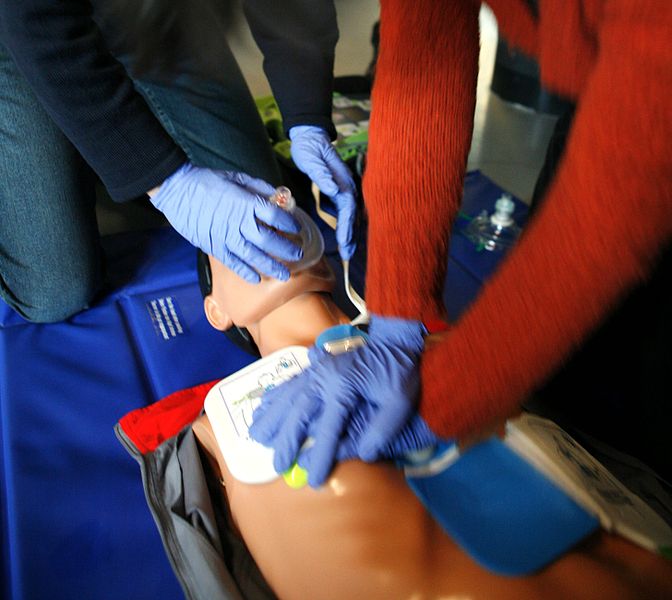Bringing people back from the dead
April 25, 2013

Cardiopulmonary resuscitation being performed on a medical-training (credit: Rama/Wikimedia Commons)
A doctor says people can be revived several hours after they have seemingly died, BBC News reports. Should this change the way we think about death?
“While 45 minutes is absolutely remarkable and a lot of people would have written her off, we now know there are people who have been brought back, three, four, five hours after they’ve died and have led remarkably good quality lives,” says Dr Sam Parnia, the director of resuscitation research at Stony Brook University in New York.
Doctors have long believed that if someone is without a heartbeat for longer than about 20 minutes, the brain usually suffers irreparable damage. But this can be avoided, Parnia says, with good quality CPR and careful post-resuscitation care.
He says it is vital that chest compressions occur at the right rate and force and that patients are not over-ventilated. CPR would be considerably prolonged, with machines doing the work.
As Parnia explains in his new book The Lazarus Effect (the U.S. title is Erasing Death), after the brain stops receiving a regular supply of oxygen through the circulation of blood it does not instantly perish but goes into a sort of hibernation, a way of fending off its own process of decay.
The process of “waking up” this hibernated brain may well be the riskiest time of all, since oxygen can potentially be toxic at this stage.
The effect, Parnia says, is like that of a tsunami following an earthquake, and the best response is to cool patients down, from 37C to 32C.
“Cooling therapy, the reason it works so well, is that it actually slows down brain cell decay,” says Parnia.
The increasingly blurred line between life and death is prompting metaphysical questions as well as medical ones.
Parnia has become fascinated by patients’ accounts of being “near death,” which he says about 10% of survivors have.